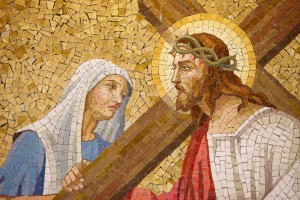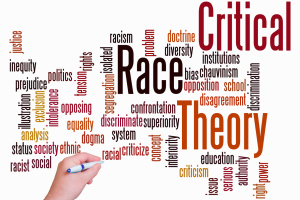Does atheism usher in utopia?

Utopia follows secularization as a shadow follows a body.[1]
There is a trait noticeable about many atheists, besides the obvious one that they don’t believe in God. This is that they hate God or the idea of God. I am, of course, not the only one to notice this. It is not true of all atheists, but it is true of many.
Examples of this are readily available. For example, here is the contemporary philosopher Thomas Nagel in a well-known quote:
I want atheism to be true and am made uneasy by the fact that some of the most intelligent and well-informed people I know are religious believers. It isn’t just that I don’t believe in God and, naturally, hope that I’m right in my belief. It’s that I hope there is no God! I don’t want there to be a God; I don’t want the universe to be like that.[2]
He goes on to say, “My guess is that the cosmic authority problem is not a rare condition and that it is responsible for much of the scientism and reductionism of our time.”[3]
This hatred of God is not a recent phenomenon.
For example, Karl Marx wrote, “Philosophy makes no secret of it. The confession of Prometheus is its own confession, its own aphorism, against all heavenly and earthly gods who do not acknowledge human self-consciousness as the highest divinity. It will have none other besides.”[4]
Nietzsche said in a similar vein, “But to reveal my heart entirely to you, friends: if there were gods, how could I endure not to be a god! Therefore, there are no gods.”[5]
Ayn Rand stated, “[T]he concept of God is insulting and degrading to man — it implies that the highest possible is not to be reached by man, that he is an inferior being who can only worship an ideal he will never achieve.”[6] “She rejected the concept of God as morally evil.”[7]
Apart from the fact that these are all ridiculous arguments, to the extent that they are arguments at all, the question remains: why do people hate God? Some have reasons that do not make this God hatred right, but at least make it understandable to an extent. People who have suffered great loss and pain may blame God for their suffering. However, this is not by any means a total explanation, for many other people have endured great loss and pain and do not hate God. In contrast, some have even come closer to God because of these experiences. Furthermore, many God-hating atheists have not suffered “great loss and pain.” Academia these days is a stronghold of atheism, as I can say from personal experience. Yet many of the academic God-haters have had rather cushy lives overall.
Perhaps there are many reasons, but I think that one is quite common and powerful. This is the one that Nagel stated — a revolt against authority. Since God is the supreme authority on everything, He is therefore the ultimate authority to revolt against. And herein lies a story, so to speak. There are a lot of people who do not like this picture of reality, to put it mildly. It seems that a basis for much of the atheism and God hatred in this world is due to the desire for autonomy — to be independent of God. It is a rejection of God and the world he made simply because they can’t stand the idea that someone else is in charge.
I believe that there is an even deeper motive than this in some of the above cases. This is the desire to be a god. If God exists as the Bible describes him, then all people owe him obedience. Even Rand opined that we would be forever subject to a being infinitely greater than we are and live in a world that he designed and created. If God is God, then we are not God. On this, Sartre said, “Thus the best way to conceive of the fundamental project of human reality is to say that man is the being whose project is to be God.”[8] That is, God must not exist so that human beings can be gods. In response, Igor Shafarevich wrote, “It would be more correct to speak here not of ‘atheists’ but of God-haters,” not of ‘atheism’: but of theophobia.”[9]
When looking at different atheist schemes, one often finds that it is not simply a denial of God, but a desire to reorder reality to the atheist’s ideas—to create a utopia out of the atheist’s imagination. This was expressed by Thomas Molnar when he described the motives for this revolt against God. He wrote, “[I]f we look closely at this list of possible atheisms, … we find that they present no great variety, that they are reducible, indeed, to one; putting man in the place of God.”[10]
Not all atheists think that they can create a utopia, but many have so believed. By far the most influential atheist utopian scheme has been that of the Marxists, and other versions of socialism.[11] Marx wrote, “Communism abolishes eternal truths, it abolishes all religion, and all morality.”[12] The essential purpose of Marxism was to create a utopia by abolishing religion, private property, and the family. In essence, the idea was to change human nature by creating a society without classes, and therefore without oppression. The whole of society would be changed. By doing this, Marx and his followers thought that they would create a perfect society — a utopia.[13] Hating the world that they found themselves in, they wanted to create one out of their own imagination. As Moses Hess wrote, “The Christian … imagines the better future of the human species … in the image of heavenly joy … We, on the other hand, will have this heaven on earth.”[14]
There is much that can be said about this. What I want to emphasize here is that Marx wanted to be a god-like figure, recreating the world. To quote Eric Voegelin, “Marx knew that he was a god creating a world. He did not want to be a creature … There are a good number of men who want to be gods.”[15] It is for this reason that many secular projects can be legitimately called political religions. They are a real religion such as Christianity. So, instead of God and Heaven after death, human beings are supposedly creating a Heaven on earth. Human beings do it instead of God and take the place of God, and all authority belongs not to God, but to human beings, or more accurately whatever dictator is in charge. Indeed, as I wrote above, I believe that this is a major motive to espouse atheism — the desire to be a god. As Whittaker Chambers wrote about the utopian communism that he once embraced, “It is the vision of man’s mind replacing God as the creative intelligence of the world.”[16] It is, in effect, a secular religion.[17]
Think about some of the teachings of Christianity. One is that God is the supreme ruler and creator of the world. We all live in a universe that has been designed by God and are subject to its laws and constants. Human beings are therefore by nature inferior to God in every way and are expected to obey God. To make matters even worse for an egoist, Christianity teaches that humans are sinners by nature — this is original sin. So not only are we lesser beings than God, but we are also highly flawed lesser beings. Further, we need to be saved from our own fallenness, and we cannot do it on our own. We even need God to save us from ourselves. To Christians, these have always seemed like essential truths. Others find them an intolerable insult, especially the notion that human beings are inherently sinful and need a savior. Ernst Cassirer stated, “The concept of original sin is the common opponent against which all the different trends of the philosophy of the Enlightenment join forces.”[18]
Besides pride, there is a reason for the rejection of the fact that human beings are highly flawed creatures. If people are not perfectible, but intrinsically sinful, utopia cannot be constructed. Thus, there is no possibility of a final happiness to be had on earth, and no chance for people to be gods creating a world. Eric Voegelin thought that modern utopian atheism was really a revised form of the ancient religion of Gnosticism. He wrote, “[G]nostics are not inclined to discover that human beings in general and they themselves in particular are inadequate.”[19]
Flawed human beings cannot create an unflawed world — heaven, and thus cannot be gods. We are and will always remain creatures. However, I think that this is good news, for to even attempt to create a utopia, all of society, each and every human being, must also be totally transformed. To do this requires totalitarianism with all its attendant evils. The doctrine of original sin denies we can create a heaven on earth. All are sinners, and so no one can be totally trusted nor given absolute power. Thus, the concept of “original sin” serves as a block to totalitarianism.
Given most atheist theories, human beings are merely material beings, evolved by chance and natural selection. We are weak, easily destroyed, and subject to all sorts of limitations of power and knowledge. To think we can gain perfection by our own efforts is therefore ludicrous, and any endeavors to achieve it will result in disaster.[20] Attempts to create a utopia, a Heaven on Earth, have killed over 100 million people.[21]
Mutations of Marxism are popular in America and the West today. The idea is based on the notion that since people are naturally good, everyone should be free, equal, and happy. Since this “universal underlying goodness” is obviously far from being the case, an explanation is called for. The general idea is that there are two groups, the top group who are oppressors, and the bottom group who are oppressed. The top group is the cause of all the bottom group’s problems.
This idea was originally from Marxism. Here, the top group is the capitalists or bourgeoisie, while the bottom group is the workers or proletarians. However, it can apply to any groups who have different statuses in society: ethnic minorities, women, homosexuals, trans people, the environment, etc. It is a never-ending justification for social unrest or worse, as all that is needed are two groups, one of which is better off and has more power than the other.[22] The basic idea is that a person’s own desires are ultimate, and reality must be bent to fulfill them. Even basic biological facts are below one’s desires. If one cannot be God and reorder the world, one can be a god and change one’s own nature. The point is not that there are no injustices in society, or that we should not try to correct them. It is rather the assumption that all different groups, and perhaps even individuals, should be equal in all ways. I consider this view absurd as is demonstrated by Thomas Sowell.[23]
Atheists don’t worry about what God thinks. They believe that they are free to come up with schemes for utopia based on what they think or envision. But since people are naturally sinners, and the world is a very complicated place, these schemes invariably crash when hitting reality. For one thing, this project for creating Heaven on earth necessarily has two groups: the planners and those who are planned for. The first group makes the rules, and the second group must obey them. Since all of society must be transformed, this entails totalitarianism. And we have two unequal groups of people again. It becomes a vicious, non-ending spiral.
Why do people think this way? Again, hatred of God and the world he has created is a large part of it. Hubris also plays a major part. To take God’s place in designing a world is tremendously ego-enhancing. (The utopian planners usually start with very large egos to begin with.) In his interesting and informative book, The Socialist Phenomena, Igor Shafarevich suggests that ultimately the desire to kill present reality is a kind of death wish.[24] I think that it is better to think of utopia as, in effect, a desire to return to infancy, where if one has good parents, nothing is expected of you, and all you want is given to you when you cry. Some of the present-day protestors seem to have the emotional maturity of two-year-olds. Writes Charles Bellinger, “Human beings typically suffer from spiritual sickness, a pneumopathology, that prevents them from inhabiting reality with integrity. They develop a need to create a ‘second reality,’ an ideologically constructed worldview, that provides a comfortable living space for their immature psyche. In this mindset, the uses of ‘autonomy’ as rhetorical device is not an idea, it is a symptom of the pneumopathology.”[25] They think that to accomplish this, the world that God created, and the present order must be destroyed, and that somehow a perfect world will arise from the ashes.[26]
From the time of the French Revolution until today, all such efforts to form a utopia on earth have proven futile and failed ignominiously. One could point to any of the communist or fascist regimes to emphasize the collapse and implosion of this political religion and ideology. The history of the past couple of centuries can be understood as attempts to replace transcendental religions like Christianity with political or secular ones. There is much more that can be said about these matters. This topic and much more are covered in my book Atheism? A Critical Analysis.
Notes
[1] Lindbom, The Tares and the Good Grain or the Kingdom of Man at the Hour of Reckoning, 11.
[2] Nagel, The Last Word, 131–32.
[3] Nagel, 32.
[4] Marx, On Religion, 14–15.
[5] Nietzsche, Thus Spoke Zarathustra 110.
[6] Branden, Who Is Ayn Rand? 129.
[7] Branden, 129.
[8] Sartre, Being and Nothingness. An Essay in Phenomenological Ontology. Transl Hazel Barnes., 694.
[9] Shafarevich, The Socialist Phenomenon, 235.
[10] Molnar, Theists and Atheists, 179–80.
[11] There are exceptions. Ayn Rand was an atheist who vehemently rejected socialism yet had her own idea for a utopia. In her major novel, Atlas Shrugged, in the third part of the book her vision of utopia is shown in chapter 1, entitled “Atlantis,” and chapter 2, “The Utopia of Greed.”
[12] Marx, The Communist Manifesto, 92.
[13] Molnar, Utopia, the Perennial Heresy.
[14] Muravchik, Heaven on Earth.
[15] Voegelin, From Enlightenment to Revolution, 298–99.
[16] Chambers, Witness, 9.
[17] Znamenski, Socialism as a Secular Creed.
[18] Cassirer, The Philosophy of the Enlightenment, 141.
[19] Voegelin, Science, Politics and Gnosticism, 86–87.
[20] Billington, Fire in the Minds of Men.
[21] Rummel, Death by Government. Both Communism and Fascism have their own utopian ideas.
[22] Lasky, Utopia and Revolution.
[23] Sowell, Discrimination and Disparities.
[24] Shafarevich, The Socialist Phenomenon.
[25] Bellinger, Jesus v. Abortion, 304.
[26] North, Marx’s Religion of Revolution.
Works Cited
Bellinger, Charles K. Jesus v. Abortion: They Know Not What They Do. Eugene, OR: Cascade, 2016.
Billington, James H. Fire in the Minds of Men: Origins of the Revolutionary Faith. New York: Basic Books, 1980.
Branden, Nathaniel. Who Is Ayn Rand? New York: Paperback Library, 1969.
Cassirer, The Philosophy of the Enlightenment. Princeton, NJ: Princeton University Press.
Chambers, Whittaker. Witness. New York: Random House, 1952.
Lasky, Melvin J. Utopia and Revolution: On the Origins of a Metaphor. Chicago, IL: University of Chicago Press, 1976.
Lindbom, Tage. The Tares and the Good Grain or the Kingdom of Man at the Hour of Reckoning. Translated by Alvin Moore, Jr. Macon, GA: Mercer University Press, 1983.
Marx, Karl and Engels, Friedrich. The Communist Manifesto. New York: Pocket, 1964.
Marx, Karl, with, Friedrich Engels. Karl Marx [and] Friedrich Engels on Religion. Rev. ed. Moscow, Progress, 1976.
Molnar, Thomas. Utopia: The Perennial Heresy. Lanham, MD: Intercollegiate Studies Institute, 1990.
Molnar, Thomas. Theists and Atheists: A Typology of Non-Belief. New York: Mouton, 1980.
Muravchik, Joshua. Heaven on Earth: The Rise, Fall, and Afterlife of Socialism. Rev. ed. New York: Encounter Books, 2019.
Nagel, Thomas. The Last Word. New York: Oxford University Press, 2001.
Nietzsche, Friedrich. Thus Spoke Zarathustra. Translated by R. J. Hollingdale. New York: Penguin, 1969.
North, Gary. Marx’s Religion of Revolution: Regeneration Through Chaos. Tyler TX: Institute for Christian Economics, 1989.
Rand, Ayn. Atlas Shrugged. New York: Random House, 1957.
Rummel, Death by Government. New Brunswick, NJ: Routledge, 1997.
Sartre, Jean-Paul. Being and Nothingness. Translated and with an introduction by Hazel Barnes. New York: Washington Square, 1966.
Shafarevich, Igor. The Socialist Phenomenon. Translated from the Russian by William Tjalsma. New York: Harper and Row Publishers, 1980.
Sowell, Thomas. Discrimination and Disparities. Rev. and enlarged ed. New York: Basic Books. 2019.
Voegelin, Eric. From Enlightenment to Revolution. Edited by John Hallowell. Durham, NC: Duke University Press, 1982.
Voegelin, Eric. Science, Politics and Gnosticism: Two Essays. Chicago, IL: Regnery Gateway, 1968.
Znamenski, Andrei. Socialism as a Secular Creed: A Modern Global History. Lanham, MD: Lexington Books, 2021.
Originally published at The Worldview Bulletin.
Dr. Stephen E. Parrish is Emeritus Professor of Philosophy at Concordia University in Ann Arbor Michigan, where he taught for 23 years. He received his Ph.D. from Wayne State University in Detroit. He is author of God and Necessity, The Knower and the Known, and most recently, Atheism? A Critical Analysis. At present he is working on a book on metaethics. He has three grown daughters, and lives with his wife and cat.



























